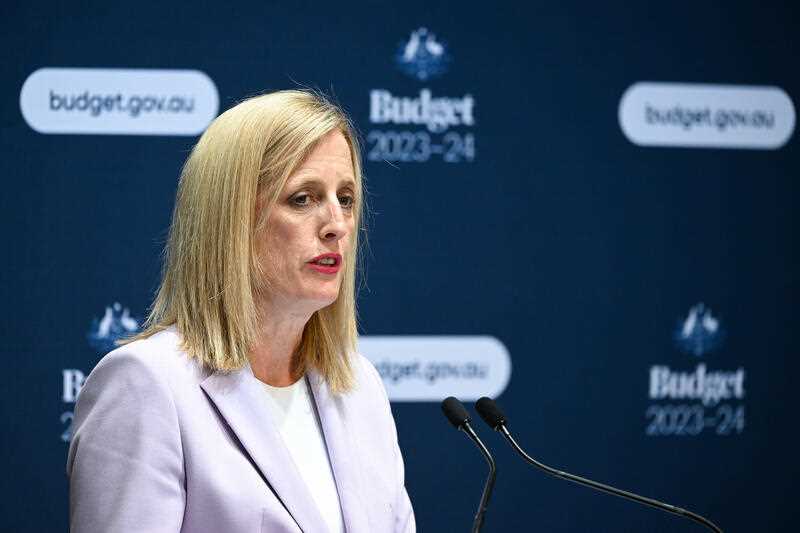Single mothers and staff in feminised workforces are some of the biggest winners in the federal budget, which puts improvements to women’s lives front and centre.
The federal government has labelled its cost-of-living support package which includes expanded eligibility for parenting payments, extra rent assistance and a minimum wage increase for aged care workers, as an investment in economic inclusion.
Budget support for highly feminised workforces – such as the early childhood and mental health care sectors – promises to help close the gender pay gap and support women’s economic equality.
Almost $590 million will also go towards women’s safety measures, bringing the total funding in the past two budgets to $2.29 billion.
Key measures include $262.6 million to address violence against Indigenous women and children and $14.7 million to improve justice system responses to survivors of sexual violence.
Women’s health and medical research will get a $26.4 million boost to help develop targeted treatments and improve support services.
A new breast cancer gene profiling test will be introduced to help to determine a patient’s risk of developing the disease, at a cost of nearly $17 million.
Nearly $20 million over two years is allocated to help parents support their child’s health and early development, including more than $5 million to support the National Breastfeeding Helpline.
Women’s Minister, ACT Senator Katy Gallagher said the budget was a significant investment in Australian women, particularly those who were most disadvantaged.
“Investing in women’s safety is indisputable, investing in women who are most disadvantaged is the right thing to do, investing in programs that help get women back to work is common sense and investing in wages for women is good economics,” she said.
Gender inequality in apprenticeships will also be tackled as part of a new program to help women enter male-dominated sectors and workplaces.
More than $8 million over four years will establish an Australian Skills Guarantee, which will set national targets for female apprentices and trainees.
The program aims to more than double the number of women apprentices on major government-funded construction projects by 2030.
From 2024/25, grant funding worth $5 million will be provided to help support women in historically male-dominated trade apprenticeships.
Expert organisations will be eligible for the grants to help increase workplace cultural safety and inclusivity, reduce cultural barriers to women’s participation and support businesses to attract and retain female workers.
Senator Gallagher said gender inequality would not be solved in one budget or one term of parliament, but the government would keep working to reduce barriers facing women.
By Maeve Bannister in Canberra



